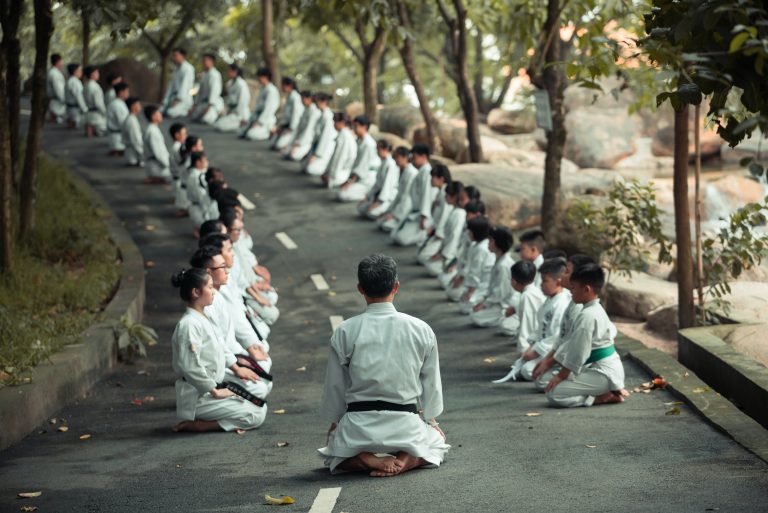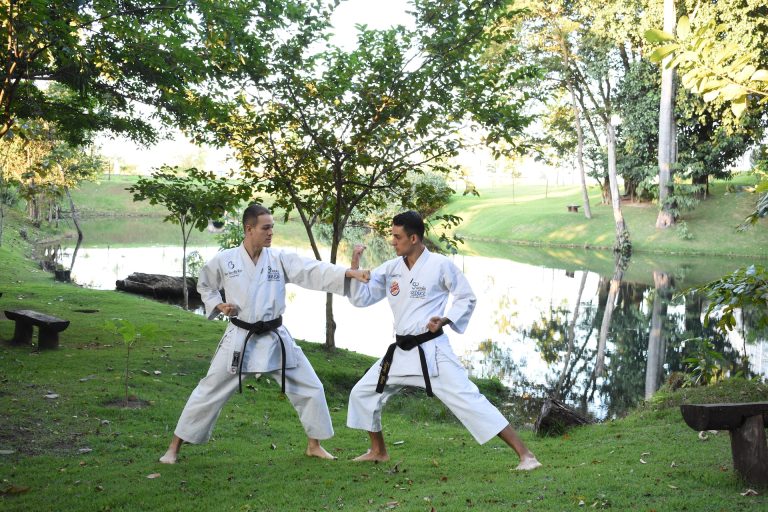The Benefits of Practicing Karate for Women
Karate is a martial art developed in Okinawa, Japan, over hundreds of years as a way to defend oneself from attack. Today, it is one of the most popular martial arts in the world, practiced by millions of people from all backgrounds. For many women, taking up karate can be a great way to learn self-defense and to develop strength, coordination, and endurance through the practice of kata (forms) and kumite (sparring). In this blog post, we are going to explore the benefits of practicing karate specifically for women.
Physical Benefits of Karate
Karate is an excellent form of exercise for women. Because it incorporates both aerobic and anaerobic conditioning, it is an excellent way to get in shape and stay in shape. Common aerobic components of karate include running, jumping, hopping, and stretching. Anaerobic components of karate include kicking and punching drills, as well as sparring with a partner. The aerobic components will improve cardiovascular health and increase endurance, while the anaerobic components will improve muscle strength and coordination.
In addition to improving cardiovascular health, practicing karate increases muscular strength. In order to perform a technique properly, one must engage both large and small muscle groups. Karate incorporates a wide variety of techniques which require the practitioner to use almost every muscle in their body. This in turn leads to increased muscle tone and increases in overall strength.
Mental Benefits of Karate
Many women do not realize that karate also provides a great mental workout. When training in karate, the emphasis is placed on mindful training; that is, having an awareness of every movement while avoiding uninhibited muscular reactions. This mindful training develops mental control, focus, and concentration which benefits not only performance in karate but all aspects of training (think Iaido).
Karate also serves as an excellent form of stress relief and emotional outlet for many women. The practice is meditative and engaging, allowing one to focus on the utility and visualizations of each movement. The physical intensity of karate allows for an outlet for stress and anger which can be beneficial for both mental and physical health.
Kicking and Punching Drills
Training in karate requires learning a variety of kicks and punches which provide an opportunity to work on coordination. In order to be most effective with each technique, practitioners must be able to coordinate their hands, feet, body, and hips in order to successfully execute a technique. By learning these techniques and then practicing them repeatedly with drills, coordination will improve over time.
Not only will coordination improve by practicing karate techniques, but strength will also increase as well. One of the primary goals of karate is being able to move quickly while applying power and control. To achieve these goals requires building a base of muscular strength throughout the body which is done by doing kicking and punching drills.
Sparring
Sparring is an important part of karate training for women as it allows for application of techniques in a safe environment with a partner. As sparring is an active exercise (unlike kata which can be done repetitively), it allows for better coordination through practice as well as improved reaction time and athleticism as one learns how to respond quicker to opponents’ punches and kicks. Furthermore, sparring also helps with fitness as it builds endurance through a much more intense aerobic exercise than what is found in traditional forms of martial arts such as kata or weapons training.
Competition
While competition is not necessary when practicing karate, it is a great way for women to measure their progress and challenge themselves further. There are many different tournaments across the globe which reflect the various styles of karate where women can participate at all levels (local, national or international). Through competition, women can also meet other likeminded people who can share in the love of martial arts. Additionally, competing can be a great way to gain deeper insights into personal growth through tournaments and referees’ comments on technique or form.
In Summary
Taking up karate can be an excellent way for women to improve physical health through the practice of various drills, forms, and sparring exercises. On top of building strength and coordination, the mindfulness aspects such as learning to become aware of every movement allow practitioners to gain greater focus and concentration which are invaluable skills both on and off the mat. Lastly, competition presents an opportunity to challenge oneself further while meeting other likeminded people along the way. All in all, taking up karate is one of the best decisions you’ll ever make!
The Benefits of Practicing Karate for Women: FAQs
Karate is a martial art form that originated in Okinawa, Japan. It primarily involves striking and blocking techniques, which can be used for self-defense, sport, and physical fitness. For women, practicing karate has numerous benefits. In this blog post, we will be answering some of the most frequently asked questions about the benefits of practicing karate for women.
1. What are the physical benefits of practicing karate for women?
Practicing karate can have a significant positive impact on a woman’s physical health. Here are some of the physical benefits:
a. Strength Training
Karate helps in building and toning muscles, making the body stronger, and improving overall body endurance. The repeated movement of blocking and striking increases core strength, balance, and stability.
b. Flexibility and Agility
Karate involves a lot of stretching, which can lead to improved flexibility, mobility, and joint health. It also helps in improving balance, coordination, and reaction time, making the body agile and nimble.
c. Cardiovascular Health
Karate is a high-intensity workout that involves a lot of aerobic and anaerobic exercises, which can improve cardiovascular health, lower blood pressure, and reduce the risk of heart disease.
2. What are the mental benefits of practicing karate for women?
Karate is not just about physical fitness; it has numerous mental benefits as well. Here are some of the mental benefits:
a. Improved Focus and Concentration
Karate involves a lot of discipline and concentration, which helps in developing focus and concentration skills. It also helps in improving memory and cognitive abilities.
b. Increased Confidence and Self-esteem
Karate provides an environment in which women can challenge themselves and overcome their fears. It helps in building self-confidence, self-esteem, and a sense of achievement.
c. Stress Relief
Practicing karate can help in reducing stress and anxiety levels. The physical activity and focus required in karate can help in clearing the mind and promoting relaxation.
3. Is karate suitable for all age groups?
Yes, karate is suitable for all age groups. There are karate classes available for women of all ages, from children to seniors. The intensity and duration of the class may vary depending on age and fitness levels.
4. Can practicing karate improve self-defense skills?
Yes, karate is an effective self-defense technique. It teaches women how to defend themselves against potential threats and avoid dangerous situations. Karate teaches women how to use their strength and leverage to overpower their attackers and escape.
5. What kind of gear is required for practicing karate?
The essential gear required for practicing karate includes a uniform or gi, belt, and protective equipment such as hand gloves, arm, shin, and mouthguard. It is advisable to get the gear from a reliable source to ensure safety and quality.
6. How can women find karate classes near them?
Women can find karate classes near them by searching for martial arts studios, karate dojos, and gyms that offer karate classes. They can also check with the local community centers or schools in their area.
7. Is it necessary to have prior experience to join karate classes?
No, prior experience is not necessary to join karate classes. The beginners‘ classes are designed to teach the basics of karate to individuals with no prior experience. The classes progress gradually to accommodate everyone’s learning curve.
8. Are there any risks associated with practicing karate?
Like any other physical activity, practicing karate comes with some degree of risk. The risks may include minor injuries such as bruises, strains, and sprains. However, these can be minimized by practicing karate under the supervision of a qualified instructor, wearing appropriate safety gear, and following safety guidelines.
9. How often should women practice karate?
The frequency of practicing karate varies depending on the individual’s goals and fitness levels. However, it is advisable to practice at least two to three times a week to see significant physical and mental benefits.
10. Can practicing karate lead to weight loss?
Yes, practicing karate can lead to weight loss. It is a high-intensity workout that burns a lot of calories, which can help in losing weight. Apart from that, karate also helps in building lean muscle mass, which increases metabolism and aids in weight loss.
Conclusion
Practicing karate for women can provide numerous physical and mental benefits that can lead to overall well-being. From improving strength, flexibility, and cardiovascular health to increasing focus, confidence, and self-esteem, karate is an excellent form of physical activity for women of all ages. With safety guidelines, proper gear, and qualified instructors, women can practice karate and reap its benefits.
Inhaltsverzeichnis






